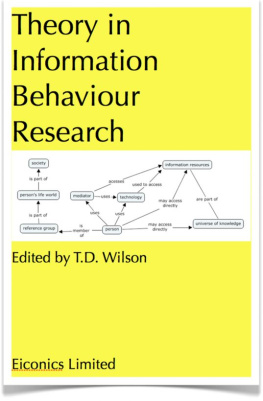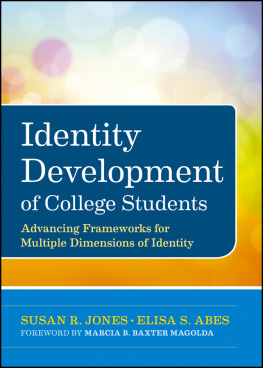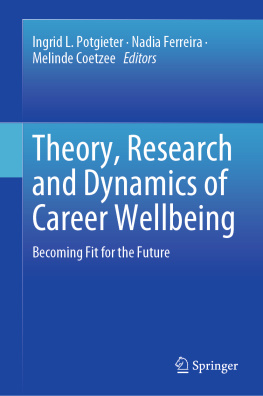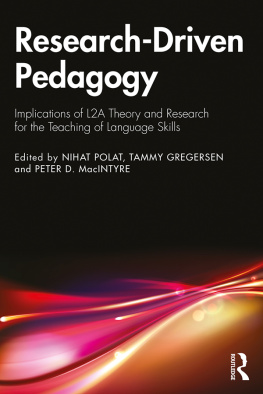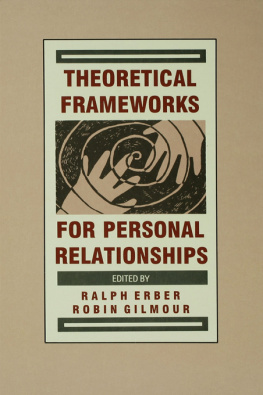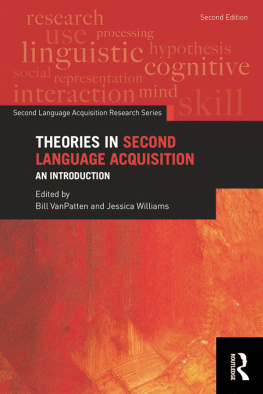About the Author
Dr. Terrell Lamont Strayhorn is associate professor of higher education in the School of Educational Policy and Leadership within the College of Education and Human Ecology at The Ohio State University, where he also serves as Senior Research Associate in the Kirwan Institute for the Study of Race & Ethnicity, Faculty Affiliate in the Todd A. Bell National Resource Center for African American Males, and holds joint appointments in the Department of Africana Studies, Sexuality Studies, and Engineering Education within the College of Arts & Sciences. He is Director/Founder of the Center for Higher Education Research & Policy (CHERP). He earned a PhD in higher education from Virginia Tech, a MEd in educational policy from the University of Virginia, and a BA in music and religious studies from the University of Virginia. In addition, he earned two certificates of advanced graduate studies in race and social policy and graduate teaching. Previously, he served as research associate for the Council of Graduate Schools in Washington, DC and The Helix Group, a public health consulting firm in suburban Maryland, as well as associate professor and Special Assistant to the Provost at the University of Tennessee.
His research centers on studying how college impacts students with a particular focus on the experiences of students of color and other historically underrepresented, misrepresented, or disadvantaged individuals. Considerable research attention has been directed toward the experiences of Black men in college and this is an area in which he has significant expertise. Using advanced statistical methods, modeling techniques, and, where appropriate, rigorous qualitative methods, Professor Strayhorn seeks to understand how facets of inequality accumulate over time and cascade into long-term disparities that, without intervention, tend to have a profound effect on ones life and livelihood. His work crosses multiple disciplinary boundaries and draws upon theoretical underpinnings from many areas in the social sciences, humanities, and even law. Past member of the American College Personnel Associations (ACPA) Commission for the Assessment of Student Development Directorate, a second segment of his research agenda focuses on assessing student learning and development outcomes. Author of Frameworks for Assessing Learning and Development Outcomes (2006), The Evolving Challenges of Black College Students (2010), College Students Sense of Belonging (2012) and several other volumes, his empirical research has been published in highly-regarded, peer-reviewed journals including The Journal of Higher Education, Journal of College Student Development, Review of Higher Education, NASAP Journal, Oracle: Research Journal of the Association of Fraternity Advisors, NASPA Journal , Journal of Hispanic Higher Education , Urban Education , and Journal of Online Interactive Learning to name a few. He is a member of several editorial boards for refereed journals in the field of higher education and student affairs including the Journal of College Student Development, NASPA Journal, College Student Affairs Journal, The Qualitative Report, National Association for Student Affairs Professionals Journal, Journal of the Professoriate, and Journal of College Student Retention: Research, Theory, & Practice. He serves as editor of Spectrum: A Journal on Black Men and Associate Editor of the NASAP Journal .
Grants from federal, state, and research organizations have supported his research. These include, but are not limited to, the National Science Foundation (NSF), U.S. Department of Education, National Association of Student Financial Aid Administrators, American College Personnel Association, National Association of Student Personnel Administrators, Tennessee Higher Education Commission, Southern Association of College Student Affairs, and the UT Office of Research.
Strayhorn is recipient of the 2006 ACPA Emerging Scholar Award, 2006 Outstanding Junior Scholar Award conferred by the Council on Ethnic Participation within the Association for the Study of Higher Education, 2007 Benjamin L. Perry Professional Service Award from NASAP, and 2008 ACPA Annuit Coeptis Emerging Professional Award. Professor Strayhorn received the coveted 2009 ASHE Early Career/Promising Scholar Award. In 2008, he received a prestigious NSF Faculty Early Career Development (CAREER) award to support a 5-year project on identifying strategies that broaden participation of minorities, namely African American and Latino males, in science, technology, engineering, and math fields. In 2011, Diverse Issues in Higher Education named him one of the top 12 Emerging Scholars in the country.
Strayhorn is the proud father of two children, Aliyah Brielle Strayhorn and Tionne Lamont Strayhorn. He is a skilled pianist, loves to watch CSI: Miami , is a member of Alpha Phi Alpha Fraternity, Incorporated, and resides in Columbus, Ohio with Teddy, his Yorkshire terrier (smile).
Acknowledgments
Any undertaking of this magnitude leaves the author indebted to a number of individuals.
I want to thank my wonderful research assistants for their help with the articles, upon which this book depends, and the final copyediting of this manuscript. Special thanks to Amanda Blakewood and James DeVita, both former research associates for the Center for Higher Education Research and Policy (CHERP). Members of my research teams at the University of Tennessee, Knoxville (UTK) and The Ohio State University (OSU) also helped to carry out many of the studies that benefited from the use of various theoretical frames. Sincere thanks to DJ Baker, Chrissy Hannon, Karl Jennings, Fred McCall, Ferlin McGaskey, Shanna Pendergrast, Demetrius Richmond, William Roberts-Foster, Eric Stokes, Chutney Walton, and Porche Wynn, all from UTK. Hearty thanks to Fei Bie, Blossom Barrett, Joseph Kitchen, Hyukje Kwon, Leroy Long, Taris Mullins, Todd Suddeth, Derrick Tillman-Kelly, Michael Steven Williams, and Marjorie Dorime-Williams. Without the competent support of my graduate students, this book would not have been possible.
I benefited greatly from the generous financial support of the American College Personnel Associations Commission for Academic Affairs Administrators, the National Association of Student Financial Aid Administrators, the National Science Foundation, the Tennessee Higher Education Commission in partnership with the U.S. Department of Education, and professional development grants available through the Provosts Office at The University of Tennessee, Knoxville.
Ive said it before and I must say it again, my family gave me the encouragement and motivation to start this project, especially my son and daughter who enjoy working with daddyAliyah working tirelessly online to download music from iTunes, Tionne writing a childrens book about two dinosaurs (one named Tionne, the other named Terrell), and me working on this book. While my family provided the fuel to start this project, it took the constant support and encouragement of my close friends to sustain me over time, long after I thought I had written the last line. Special recognition to Jamaal Brown, Ryan Davis, Elias Fishburne, Darren Harris, Melanie Hayden, Leonette Henderson, Leon Howell, Royel Johnson, Evelyn Leathers, Belinda Bennett McFeeters, Jeremy Morris, Tonya Saddler, and Mario Williams.
I wish to thank several colleagues who study the impact of college on students, the use of theoretical frameworks in research, or a combination of both. Without their contributions to our collective knowledge, my understanding of theoretical frameworks in college student research, while still incomplete, would be far too limited to write an entire book about it. Thus, I recognize the encouragement and support of Grady Bogue, Elizabeth Creamer, Marybeth Gasman, Joan Hirt, Steve Janosik, Adrianna Kezar, Susan Komives, George Kuh, Norma Mertz, Amaury Nora, Robert Palmer, Laura Perna, Jane Redmond, Margaret Sallee, Pat Terenzini, Melvin Terrell, Bill Tierney, and Vincent Tinto. Special recognition to my former advisor, mentor, and lifelong friend, Don Creamer, who inspired me to play professor. Almost every Wednesday morning during my last year of doctoral study, Don and I met, in his office, to review drafts of my dissertation, argue out differences about measuring student outcomes, and muse about the importance of theory to practice and research. I learned much from my Wednesdays with Don and still erupt into laughter when my mind runs back to his timeless adagesHow much theory? Well, how long is a rope?


